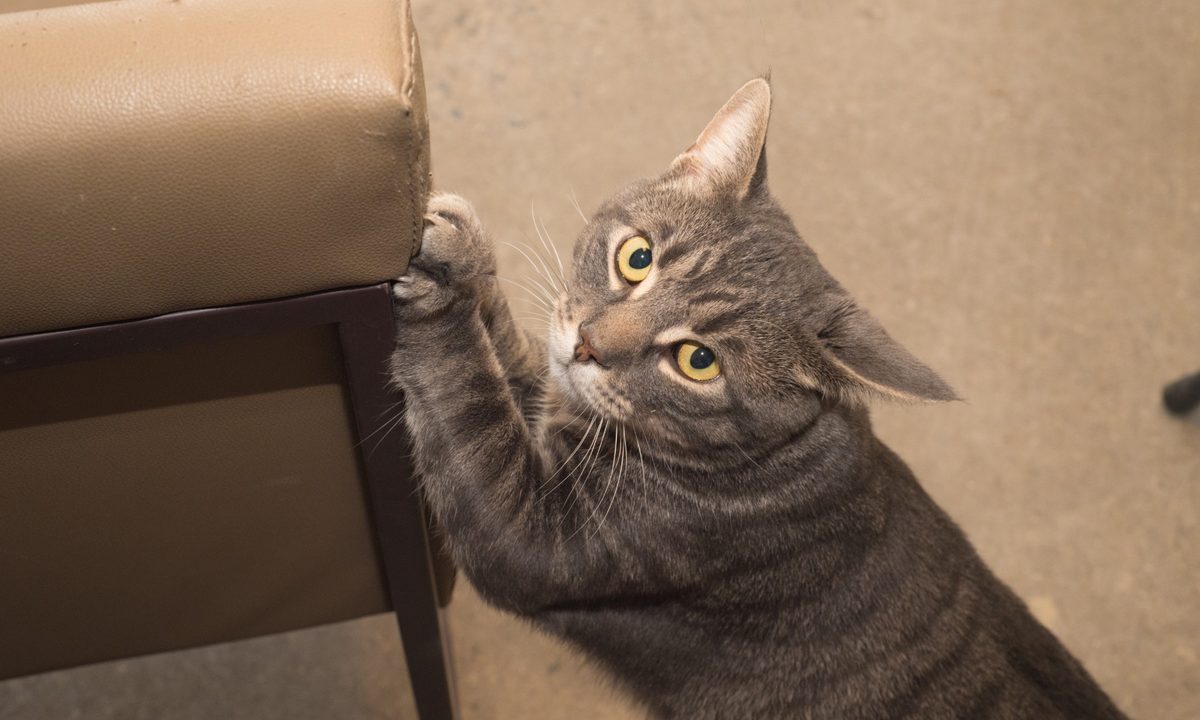Kitty parenthood can present some serious conundrums. On the one hand, you love your cat more than you love any object in your home. However, it’s only normal to be upset when your cat scratches up your favorite antique table. Sound familiar? Those home renovations you made weren’t cheap, nor were the state-of-the-art scratching posts and cat trees you made or bought for your cat.
Though cat scratching is a common behavior, it’s probably not your favorite habit if your cat is doing it on furniture, cabinets, carpet, or walls. Like many less-than-desirable cat behaviors, there may be several reasons for incessant scratching. You’ll want to pinpoint the specific triggers for your cat so you can take steps to fix the issue. Allow us to play detective for you.
Why is my indoor cat scratching so much?
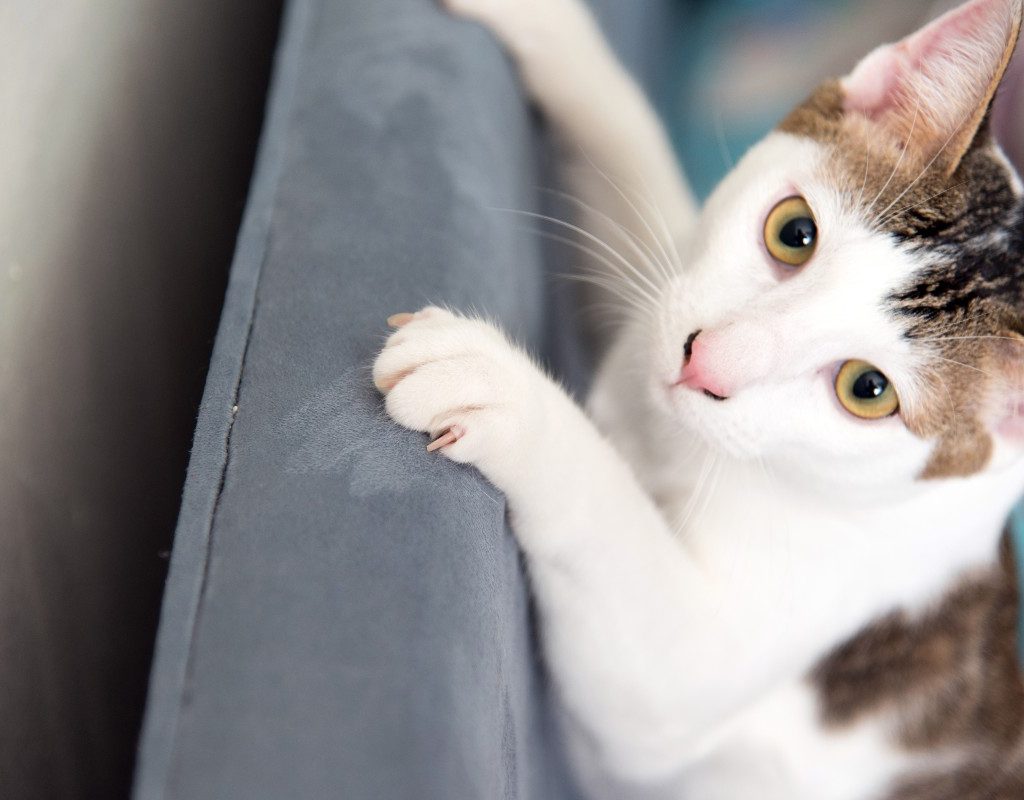
Outdoor cats scratch trees, posts, and fences to condition their claws and mark territory — especially if they’re having issues with other neighborhood cats. Scratching can serve as a form of protection and an outlet for emotions, primarily stress or excitement. Sometimes, though, cats also like to scratch to give themselves a manicure, as the action removes the dead parts of their nails.
Even if your cat has their own private space for a litter box and doesn’t have to contend with predators, you might find yourself having an issue with scratching. Regardless of where a feline lives, scratching is instinctual. Cats don’t always take the time to think, “Should I scratch here, or will it make my human upset?” Instead, they may default to, “I need to scratch. This spot looks good.”
What does it mean if my cat is scratching more frequently than normal?
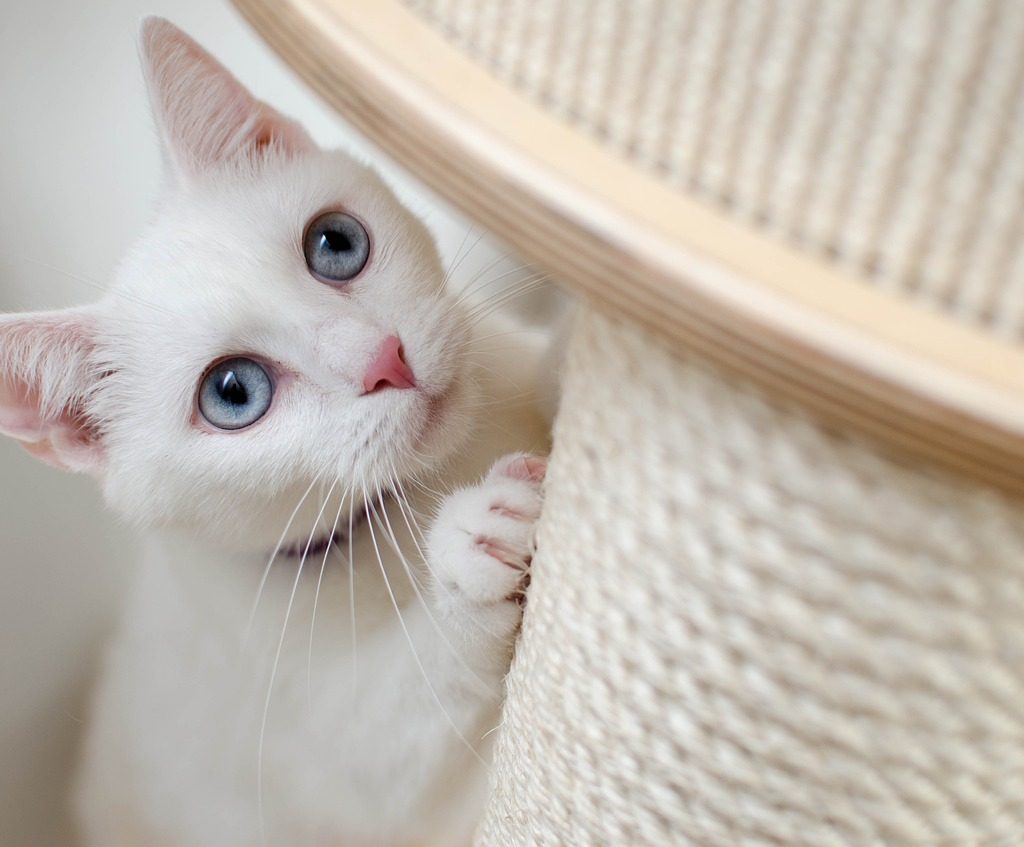
If your cat suddenly begins scratching much more frequently, it could be a sign something is off. Here’s what could be behind their annoying behavior:
- Your kitty is upset. Did your cat recently undergo a change? For example, perhaps another beloved family pet died, or you returned to work. Scratching could be your cat’s way of expressing their feelings.
- They don’t have an appropriate outlet. Cats are going to scratch — it’s instinctual — but the goal is to have them use something designed for scratching, such as a post or a cat tree. If you haven’t invested in one, now is likely the time. The one your kitty has been using may be old and frayed, so you may need to upgrade it.
- Boredom. Sometimes, cats need something — anything — to do, so they might resort to scratching. Your new sofa may simply look fun. Also, if you seem to notice them more when they scratch, it may be an attention-seeking behavior.
- Fear or anxiety. Your cat may be scared and feel the need to scratch to mark their territory. They spray (urinate) for the same reason. If you recently moved in with new roommates or adopted a new pet, your pet may be anxious and want to stake claim to their territory.
What if my cat keeps scratching themselves?
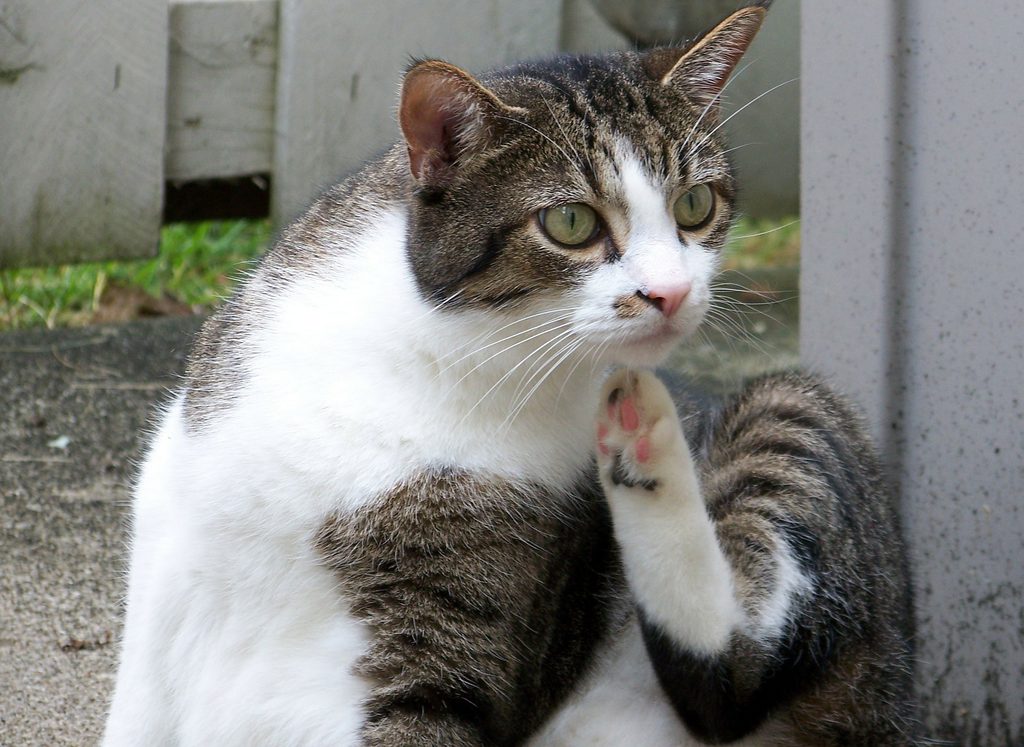
Tearing up furniture and shoes is one thing, but you have every right to be concerned if your kitty keeps scratching themselves. You may be tempted to look for bugs, scratches, or anything stuck in their fur, but sometimes the problem can’t be found with the naked eye.
Most of the time, an itchy cat is a telltale sign of allergies. They might scratch at a specific area, like their ears or paws, but they could also be dealing with systemic, full-body itchiness. If you notice any swelling or have any reason to believe your cat is developing anaphylaxis, please don’t wait to take them to the vet. You’ll also want to give your veterinarian a call if your cat is so itchy that they begin to lose their fur or bleed. Usually, allergies are not an emergency and can be effectively treated with the assistance of a veterinarian.
What should I do if my cat keeps scratching?
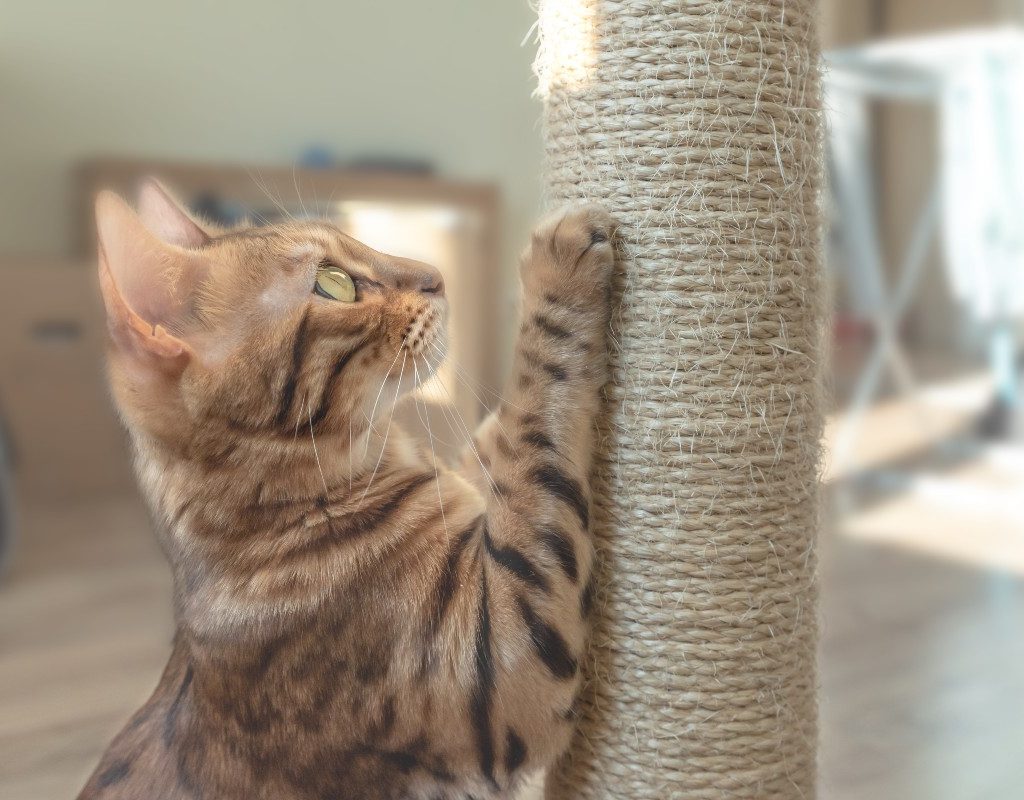
Though you can’t completely stop your cat from scratching, you can encourage them to scratch in designated places. Here are some top tips for accomplishing that together.
- Get a scratching post or two. Purchasing a cat scratching post or having a couple across the house can help direct your pet’s urges to an appropriate spot. Scent the posts with catnip to make them more interesting than your couch if you need something special to entice them.
- Play. Playing with your cat helps tire them out and reduces boredom. As a result, they’ll be more content (and tired) and less likely to scratch.
- Trim their nails. A regular mani for your cat may not be fun for them, but it’ll remove the dead parts of the nails for them.
- Make your sofa less desirable. Put crinkle paper or double-sided sticky tape on your cat’s favorite inappropriate spot to scratch. They don’t love how these items feel on their paws, so it’ll encourage them to seek another place to act on their urges.
All in all, cat scratching is completely normal and instinctual. Cats scratch to mark territory, release emotions, alleviate boredom, and ensure they can defend themselves. You can’t stop your kitty from scratching completely, but you can direct them toward an appropriate outlet using the methods we’ve discussed. And remember — you can always speak with your vet if you’re still struggling to help your kitty break the habit.
